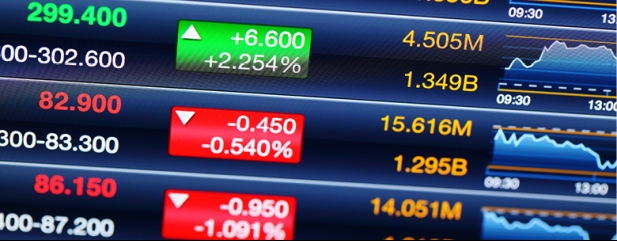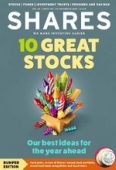Archived article
Please note that tax, investment, pension and ISA rules can change and the information and any views contained in this article may now be inaccurate.
Markets undergo a dramatic week leaving investors dizzy

Markets suffered a rare back-to-back fall on Friday and Monday (17/20 December) on a combination of rapidly increasing Covid cases, an unexpected UK interest rate rise and an unwelcome blow to the US growth outlook.
The spread of the Omicron variant continued to accelerate causing several countries to implement new restrictions on social activities in the run up to the holiday period.
In the UK there was substantial opposition from Conservative MPs to the introduction of vaccine passports for large-scale events, adding to pressure on the Government in a week which saw it lose one of its safest electoral seats in a by-election.
The Bank of England added to traders and investors’ woes when it unexpectedly raised its benchmark interest rate from 0.1% to 0.25% in the face of more persistent inflation pressures and a tight labour market. Bank governor Andrew Bailey said he expected consumer prices to top 6% in coming months, three times the official target rate.
With markets already on edge, news over the weekend that US Democrat senator Joe Manchin would oppose President Biden’s ‘Build Back Better’ programme sent traders and investors running for cover on Monday.
Manchin, who until this point had backed the president, said he couldn’t vote in favour of the $1.75 trillion spending package as the US debt burden was already too large.
UK companies with large US operations such as equipment hire firm Ashtead (AHT) and building materials supplier CRH (CRH), which on paper could be big winners from US government spending, saw their shares sold off, while Brent crude oil futures slumped to $71 per barrel as economists looked to cut their growth forecasts.
Failure to secure Democrat support for the bill – which is roundly opposed by Republican senators – raises questions about the outlook for the US and could cast doubt on the outcome of next year’s crucial mid-term elections.
The risk-off mood was keenly felt in mining stocks along with reopening trades such as airlines and recent listings such as Darktrace (DARK). US technology stocks weren’t immune to selling either, with the Nasdaq 100 index down hard over the second half of last week and the start of this week.
Gold lived up to its safe-haven billing, holding around $1,800 per ounce, and silver – traditionally more of an industrial metal – also held steady around $22 per ounce.
However, bitcoin – supposedly a viable alternative to fiat currencies – did no better than other risk assets, falling to $45,500 compared with its high of $67,500 in early November.
Markets enjoyed a rebound on Tuesday 21 December led by housebuilders, while miners recovered some but by no means all their losses.
Important information:
These articles are provided by Shares magazine which is published by AJ Bell Media, a part of AJ Bell. Shares is not written by AJ Bell.
Shares is provided for your general information and use and is not a personal recommendation to invest. It is not intended to be relied upon by you in making or not making any investment decisions. The investments referred to in these articles will not be suitable for all investors. If in doubt please seek appropriate independent financial advice.
Investors acting on the information in these articles do so at their own risk and AJ Bell Media and its staff do not accept liability for losses suffered by investors as a result of their investment decisions.
Issue contents
Danni Hewson
Editor's View
Feature
- 10 great stocks: Our best ideas for the year ahead
- Stock pick for 2022: Jet2
- Stock pick for 2022: Alphabet
- Why Meta could produce a positive surprise in 2022
- Fund managers: stocks that let us down in 2021
- The best performing stocks of 2021: big and small
- Emerging markets: Views from the experts
- Key events to watch for emerging markets in 2022
Funds
Great Ideas
- Stock pick for 2022: Tate & Lyle
- Stock pick for 2022: Roche
- Stock tip for 2022: Loungers
- Stock pick for 2021: Schneider Electric
- Stock pick for 2022: London Stock Exchange
- Stock pick for 2022: Accsys Technologies
- 8.5% share price return from our 2021 stock picks
- Stock pick for 2022: Pets at Home
- Stock pick for 2022: IOG

 magazine
magazine








